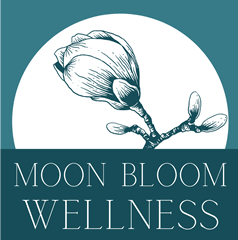Polyunsaturated Fats, or PUFAs, from the right sources and in the right quantities, are important for your health. However, several common oils are high in omega-6 PUFAs and can wreak havoc on your health. These plant oils are being dramatically overconsumed in Western diets due to their presence in many products we eat. To give you an idea, throughout our evolution, the ratio of omega-6 to omega-3 PUFAs being consumed by humans was about 1:1. We now consume these oils in a ratio of about 20:1.1
Nutrition Coach Philadelphia
Sarah Tronco, CMHIMP, is a Philadelphia Nutrition Coach specializing in mental nutrition. Sarah offers individualized mental health nutrition coaching that empowers you to make sustainable changes to improve your overall well-being.
Impact on Health
What happens when we overconsume poor quality omega-6 PUFAs? Studies show that, while a higher intake of omega-3 PUFAs are associated with a lower risk of metabolic syndrome, consumption of omega-6 PUFAs did not lower the risk.2 The increase in omega-6 PUFAs causes a shift in the production of inflammatory regulators leading to a proinflammatory profile, which is associated with conditions such as cardiovascular disease, rheumatoid arthritis, diabetes, obesity, and inflammatory bowel disease.3
Diets too high in omega-6 and low in omega-3 likely contribute to risk for mental disorders, such as depression.4 In 13 animal studies, the ratio of omega-6 to omega-3 PUFAs affected brain composition and increased the risk of Alzheimer’s disease.5 To read more about the importance of omega-3 fatty acids, click here.
Oils to Avoid
Oils to avoid are industrial oils that are unstable and convert to toxins in the body when consumed regularly, as they contain high levels of omega-6 PUFAs that lead to inflammation and weaken your immune system.6 The list consists of the following oils:
-Corn
-Canola
-Cottonseed
-Soy
-Sunflower
-Safflower
-Ricebran
-Grapeseed
Many processed foods contain these oils, so it’s important to scrutinize ingredient labels as you begin the process to decrease your intake of unhealthy oils. Even brands that present themselves as being healthy can contain these oils, so it’s always better to rely on your own assessment rather than an impression given by marketing.
Nutrition Coach Philadelphia Sarah Tronco, CMHIMP, is a Philadelphia Nutrition Coach specializing in mental nutrition. Sarah offers individualized mental health nutrition coaching that empowers you to make sustainable changes to improve your overall well-being.
References:
- https://www.healthline.com/nutrition/are-vegetable-and-seed-oils-bad#omega
- https://pubmed.ncbi.nlm.nih.gov/31010701/
- https://www.ncbi.nlm.nih.gov/pmc/articles/PMC3335257/
- https://www.nature.com/articles/tp2017190
- https://www.tandfonline.com/doi/full/10.1080/21551197.2012.752335?scroll=top&needAccess=true
- https://drcate.com/the-hateful-eight-enemy-fats-that-destroy-your-health/
- Photo by Rodion Kutsaev on Unsplash

